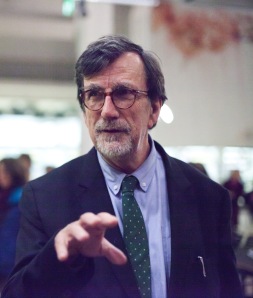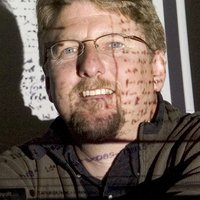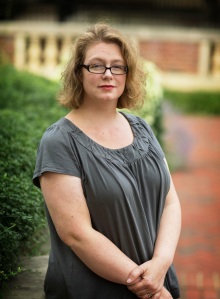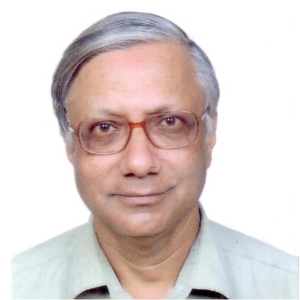A very popular part of all Digital Humanities conferences are the keynote speakers, so we are very pleased to welcome four distinguished colleagues to DH2014.
All of these four keynotes will be live-streamed here.
Opening Plenary Lecture
Date: Tuesday, July 8, 2014 at 17:00
Location: Swiss Tech Convention Center, EPFL
Rematerializing Humanities Thanks to Digital Traces
Overview:
Since the great advantage of the digital is to rematerialize the older cognitive functions it becomes possible to transform many activities considered before as “abstract” into an empirical domain. The lecture will go through several attempts at harnessing this new materiality for the benefit of digital humanities and social science generally. Examples will be drawn from the field of publishing, design, research as well as from social theory and political science.
Biography:
Bruno Latour is professor at Sciences Po Paris, director of its medialab and principal investigator of the AIME project, he has also realized a MOOC on “scientific humanities” (on the FUN platform) and developped from the outside, because of his interest in actor-network-theory, an interest in the digital as a tracer of associations. He is the recipient of the Holberg Prize for 2013. Most of his papers and all its references can be find, together with lots of other documents and goodies, on his webpage http://www.bruno-latour.fr/
Zampolli Award Lecture
Date: Wednesday, July 9, 2014 at 16:30
Location: Amphimax Building, UNIL
Communities of Practice, the Methodological Commons, and Digital Self-Determination in the Humanities
Overview:
In the context of trends shaping and influencing change in the Humanities and the cultures of the university, this talk considers the Digital Humanities’ positive role in the process of the Humanities (digital) self-determination. Considered in this engagement are: the important (and profitably-elusive) process of defining Digital Humanities; foundational notions of the methodological commons and communities of practice, and the ways in which such originate, are fostered, are engaged, and themselves engage; and the value of an open approach to current and future work on modelling humanistic data and process, in ways that build on these foundations to embrace the communities and constituencies served by the Humanities.
Biography:
Ray Siemens (U Victoria; http://web.uvic.ca/~siemens/) is Canada Research Chair in Humanities Computing and Distinguished Professor in the Faculty of Humanities at the University of Victoria, in English and Computer Science. He is founding editor of the electronic scholarly journal Early Modern Literary Studies, and his publications include, among others, Blackwell’s Companion to Digital Humanities (with Schreibman and Unsworth), Blackwell’s Companion to Digital Literary Studies (with Schreibman), A Social Edition of the Devonshire MS, and Literary Studies in the Digital Age (MLA, with Price). He directs the Implementing New Knowledge Environments project, the Digital Humanities Summer Institute and the Electronic Textual Cultures Lab, and serves as Vice President of the Canadian Federation of the Humanities and Social Sciences for Research Dissemination, recently serving also as Chair of the international Alliance of Digital Humanities Organisations’ Steering Committee.
Community Plenary Lecture
Date: Thursday, July 10, 2014 at 17:30
Location: Amphimax Building, UNIL
Digital Humanities in the Anthropocene
Overview:
This will be a practitioner’s talk, and–though the abstract belies it–an optimistic one. I take as given the evidence that human beings are irrevocably altering the conditions for life on Earth and that, despite certain unpredictabilities, we live at the cusp of a mass extinction. What is the place of digital humanities practice in the new social and geological era of the Anthropocene? What are the DH community’s most significant responsibilities, and to whom? This talk will position itself in deep time, but strive for a foothold in the vital here-and-now of service to broad publics. From the presentist, emotional aesthetics of Dark Mountain to the arms-length futurism of the Long Now, I’ll dwell on concepts of graceful degradation, preservation, memorialization, apocalypse, ephemerality, and minimal computing. I’ll discuss digital recovery and close reading of texts and artifacts–like the Herculaneum papyri–once thought lost forever, and the ways that prosopography, graphesis, and distant reading open new vistas on the longue durée. Can DH develop a practical ethics of resilience and repair? Can it become more humane while working at inhuman scales? Can we resist narratives of progress, and yet progress? I wish to open community discussion about the practice of DH, and what to give, in the face of a great hiatus or the end of it all.
Biography:
Bethany Nowviskie has been active in the DH community since the mid-1990s, and is currently President of the Association for Computers and the Humanities. At the University of Virginia, Dr. Nowviskie directs the Scholars’ Lab and UVa Library department of Digital Research and Scholarship, and serves as Special Advisor to the Provost for digital humanities. A mother of two, her less important projects include the Rossetti Archive, the Ivanhoe Game, Temporal Modelling, NINES, the Scholarly Communication Institute, the Praxis Program, Prism, Speaking in Code, and Neatline. She works on graduate education, textual materiality, the future of libraries, and the intersection of digital methods with humanities interpretation. A recent profile in the Chronicle of Higher Education reads: “Bethany Nowviskie likes to build things.”
Closing Plenary Lecture Date: Friday, July 11, 2014 at 17:00 Location: Amphimax Building, UNIL
Tagore and Beyond: Looking at the Large Literary Database
Overview:
I will begin my talk with a short account of the making of the Tagore Online Variorum ‘Bichitra’, the world’s largest literary website, outlining its main features. I will suggest the potential significance of Bichitra as the model of a ‘very large textual object’, to be mined and analysed in innovative ways through sophisticated use of the search and collation functions and the resources of topic modelling. I will argue that perhaps uniquely, textual data requires attention to the ‘third dimension’ of content analysis normally eschewed in processing big data. At the same time, even the ‘very large textual object’, being small by the measures of big data, is exceptionally amenable to such analysis, whose outcome may then be applied to other categories of data. I would like to suggest that the large textual database can open up a new kind of dialogue between humans and computers, a distinctive contribution of digital humanities.
Biography:
Sukanta Chaudhuri divided his working life as Professor of English between Presidency College, Kolkata and Jadavpur University. At Jadavpur, he founded the School of Cultural Texts and Records for, inter alia, the practice of digital humanities. He personally administered two of the five projects executed by the School for the Endangered Archives Programme of the British Library. He planned and co-ordinated the Tagore Variorum website ‘Bichitra’, incorporating all English and Bengali works by Rabindranath Tagore in nearly all versions (nearly 140,000 pages of primary material), with some innovative programs to transcribe and process them. His original specialization is in English and European Renaissance studies, and textual and editorial work. His last monograph was The Metaphysics of Text (Cambridge University Press, 2010). He is currently editing A Midsummer Night’s Dream for the Third Arden Shakespeare. He has also translated widely from Bengali to English, and is General Editor of the Oxford Tagore Translations series.





You must be logged in to post a comment.